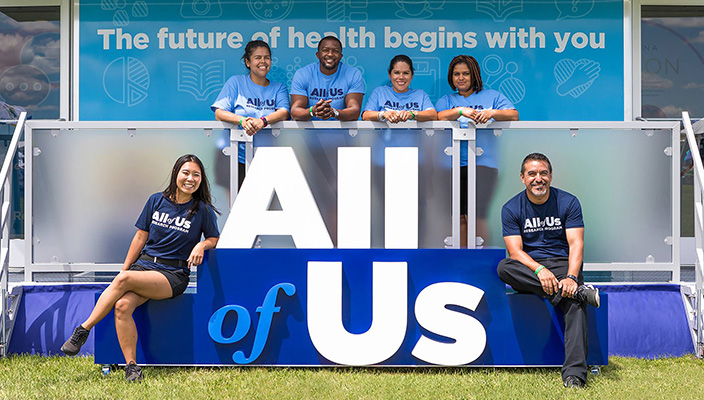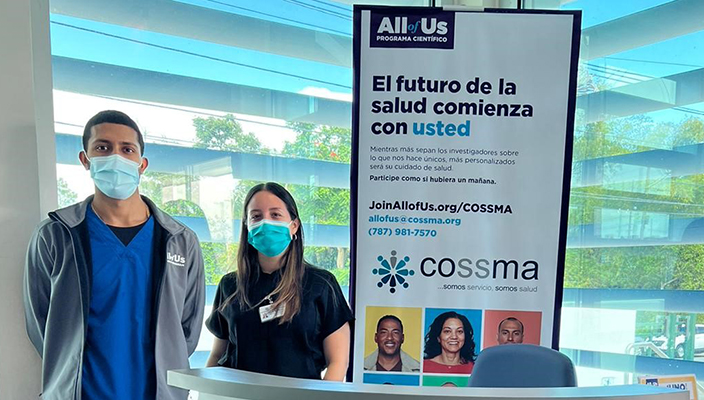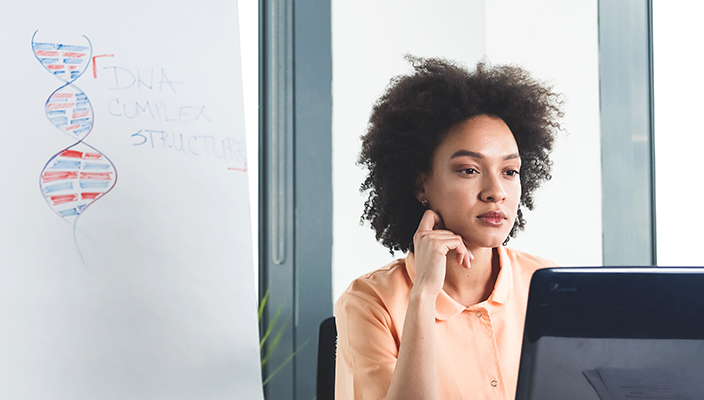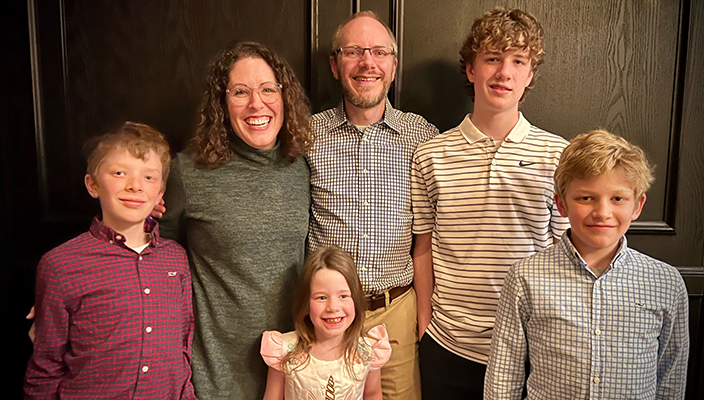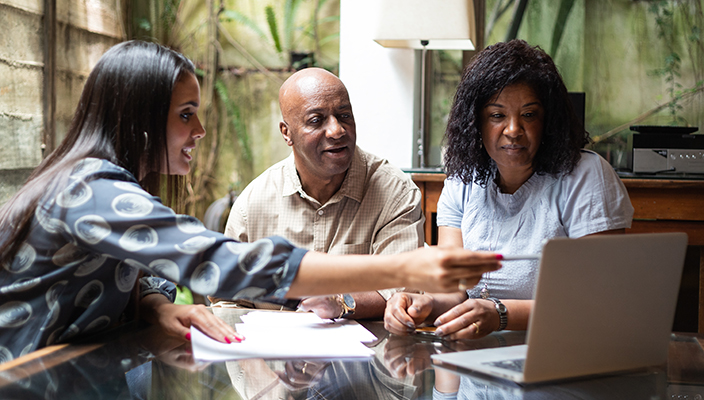Precision medicine is personal for All of Us Chief Executive Officer Josh Denny, M.D., M.S., and his wife Carolyn Denny, MBA. A family history of cystic fibrosis spurred Josh to medical school. As a young couple, they had a child with a rare genetic condition and few treatments. This energized the couple's vow to help speed up health research for all.
“Our experiences have been motivating,” Josh said. “We know researchers can learn from large datasets to improve care for everyone.”
Josh knew his father endured much loss from cystic fibrosis, a genetic disease. Four of his father's siblings died as children from it. It affects the lungs, pancreas, and other organs and gets progressively worse.
“I’ve always been close to my grandmother, so I grew up hearing stories about the children she had lost,” Josh said. “My dad had memories of the last trip to the hospital with one of his siblings in his arms. You cannot quantify the pain that kind of loss causes. It leaves an indelible mark."
“That’s part of why I became a doctor,” he added. “I’ve always felt called to do something that helps people, especially where medicine doesn’t have any answers yet. We need more answers, treatments, cures.”
Josh went to Vanderbilt University School of Medicine in Nashville, Tennessee. There he saw a variety of patients with both common and rare diseases. He treated some patients for whom the typical treatment didn’t work. Some had conditions that went undetected for years. Others had rare or unusually severe symptoms.
He applied his training to his own family after Carolyn gave birth to their second son in 2009. Within a few weeks after their son was born, both parents knew something was wrong. Their son came down with a severe case of viral meningitis. Other health issues followed.
The Dennys quickly ruled out cystic fibrosis through testing, a relief. But the cause remained elusive. After years of consulting with specialists, their son was finally diagnosed at age 7. He had neurofibromatosis type 1 (NF1). NF1 is a rare condition that can cause tumors to grow around nerves in the skin, brain, and other parts of the body.
For Carolyn, managing the health care system for her son’s treatment gave her a sense of urgency.
“Our son has had multiple health challenges with very few treatments. We’ve been eager for more information and progress,” she said. “We are seeing improvements—with more research, with more data. We would love to have more answers before our son grows up.”
Building a Framework for Precision Medicine
Josh was the first in his family to pursue a career in medicine. But he had considered other paths. As a middle school student, he started building computer systems and writing software. While in medical school, he wanted to mix his passion for computer programming with science and medicine. That’s when Josh discovered biomedical informatics, the perfect match for his interests.
“Informatics was really energizing,” Josh said. “It was a way to use my passions to actually make a difference in medical education and later in medical discovery.”
In 2007, he became a professor at Vanderbilt and continued to see patients. He taught classes in biomedical informatics and medicine. And he pioneered the use of electronic health records (EHRs) in research. At the time, health records could only be used for individual patients. It wasn't easy to pull information from EHRs in groups of patients. EHR data provided an opportunity to examine genetic connections in disease, he said.
“I felt it was imperative that we be able to learn something from every patient we saw. It’s all taken for granted that we can do this now,” Josh said. “Back then, it was really a powerful new paradigm.”
At Vanderbilt, he helped launch the first pharmacogenetics program in 2010. The program used DNA to work out what medications were the right fit for which patients. In 2015, he became the founding director of Vanderbilt's Center for Precision Medicine.
Becoming CEO of All of Us in 2020 was a natural fit. He had worked with founding NIH Director Francis Collins, M.D., Ph.D. The two had a strong bond as Dr. Collins discovered the genes for both cystic fibrosis and NF1, among others.
“Josh Denny is not only an internationally respected physician-scientist in the area of precision medicine. He is a dad who knows firsthand about the implications of genetic conditions for children and their families,” Dr. Collins said. “That just adds more fire to his passion for All of Us.”
Indeed, Josh is still pursuing his own research. He is tapping All of Us data to study both cystic fibrosis and NF1.
A Meeting of the Minds and Calling of the Heart
Carolyn and Josh Denny have encouraged one another throughout their careers. They met on a blind date 27 years ago while students at Vanderbilt. They soon discovered that they shared an independent streak, a passion for education, and a strong faith.
Carolyn was raised in a suburb of Philadelphia, PA, until her family moved to Nashville when she was in middle school. There she would stay for almost 30 years. She studied English and secondary education as an undergraduate at Vanderbilt. She later returned for her master’s degree in business. For several years, she worked for a book publishing company as a brand manager.
Carolyn and Josh married after her junior year and his first year of medical school. It was such a rare event on campus that the university newspaper featured it.
“It’s hard to believe that was almost 25 years ago,” Josh said. “Then again, we’ve come a long way since then! I guess you could say that for our family—four kids later—but you could also say that about medicine. A lot has changed for the better.”
All of Us is marking its own anniversary this May. It's been five years since All of Us started enrolling people nationwide. Today, the program’s database includes more than 440,000 participants. The group reflects the diversity of the country. The program has made nearly a quarter million DNA sequences available for researchers. That makes the database the world’s largest and most diverse resource of its kind. Now researchers can explore nearly any disease and work toward solutions. Those diseases include even rare ones, such as NF1.
“It was really important as we built All of Us that it be the kind of program that can cover all diseases, all lifestyles, all environments,” Josh said. “Because every person matters. And it is literally more powerful when we all participate.”
Read more about Josh and Carolyn in the full Voices of All of Us profile.





